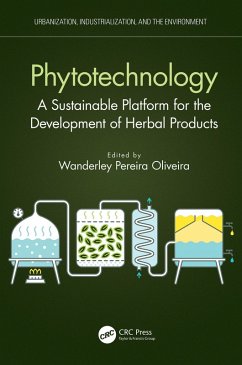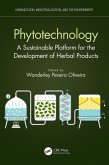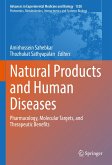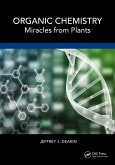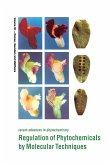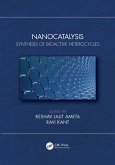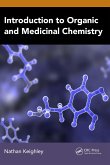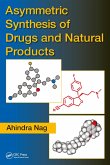Phytotechnology (eBook, PDF)
A Sustainable Platform for the Development of Herbal Products
Redaktion: Oliveira, Wanderley Pereira
50,95 €
50,95 €
inkl. MwSt.
Sofort per Download lieferbar

25 °P sammeln
50,95 €
Als Download kaufen

50,95 €
inkl. MwSt.
Sofort per Download lieferbar

25 °P sammeln
Jetzt verschenken
Alle Infos zum eBook verschenken
50,95 €
inkl. MwSt.
Sofort per Download lieferbar
Alle Infos zum eBook verschenken

25 °P sammeln
Phytotechnology (eBook, PDF)
A Sustainable Platform for the Development of Herbal Products
Redaktion: Oliveira, Wanderley Pereira
- Format: PDF
- Merkliste
- Auf die Merkliste
- Bewerten Bewerten
- Teilen
- Produkt teilen
- Produkterinnerung
- Produkterinnerung

Bitte loggen Sie sich zunächst in Ihr Kundenkonto ein oder registrieren Sie sich bei
bücher.de, um das eBook-Abo tolino select nutzen zu können.
Hier können Sie sich einloggen
Hier können Sie sich einloggen
Sie sind bereits eingeloggt. Klicken Sie auf 2. tolino select Abo, um fortzufahren.

Bitte loggen Sie sich zunächst in Ihr Kundenkonto ein oder registrieren Sie sich bei bücher.de, um das eBook-Abo tolino select nutzen zu können.
This book addresses clearly and objectively the fundamental and technological concepts involved in the process and manufacturing of high-quality herbal products. The text is written using a multidisciplinary approach to include all subjects involved in phytopharmaceutical technology, and to accurately portray each step of the process.
- Geräte: PC
- mit Kopierschutz
- eBook Hilfe
Andere Kunden interessierten sich auch für
![Phytotechnology (eBook, ePUB) Phytotechnology (eBook, ePUB)]() Phytotechnology (eBook, ePUB)50,95 €
Phytotechnology (eBook, ePUB)50,95 €![Natural Products and Human Diseases (eBook, PDF) Natural Products and Human Diseases (eBook, PDF)]() Natural Products and Human Diseases (eBook, PDF)161,95 €
Natural Products and Human Diseases (eBook, PDF)161,95 €![Organic Chemistry (eBook, PDF) Organic Chemistry (eBook, PDF)]() Jeffrey John DeakinOrganic Chemistry (eBook, PDF)48,95 €
Jeffrey John DeakinOrganic Chemistry (eBook, PDF)48,95 €![Regulation of Phytochemicals by Molecular Techniques (eBook, PDF) Regulation of Phytochemicals by Molecular Techniques (eBook, PDF)]() J. A. SaundersRegulation of Phytochemicals by Molecular Techniques (eBook, PDF)125,95 €
J. A. SaundersRegulation of Phytochemicals by Molecular Techniques (eBook, PDF)125,95 €![Nanocatalysis (eBook, PDF) Nanocatalysis (eBook, PDF)]() Nanocatalysis (eBook, PDF)60,95 €
Nanocatalysis (eBook, PDF)60,95 €![Introduction to Organic and Medicinal Chemistry (eBook, PDF) Introduction to Organic and Medicinal Chemistry (eBook, PDF)]() Nathan KeighleyIntroduction to Organic and Medicinal Chemistry (eBook, PDF)48,95 €
Nathan KeighleyIntroduction to Organic and Medicinal Chemistry (eBook, PDF)48,95 €![Asymmetric Synthesis of Drugs and Natural Products (eBook, PDF) Asymmetric Synthesis of Drugs and Natural Products (eBook, PDF)]() Asymmetric Synthesis of Drugs and Natural Products (eBook, PDF)231,95 €
Asymmetric Synthesis of Drugs and Natural Products (eBook, PDF)231,95 €-
-
-
This book addresses clearly and objectively the fundamental and technological concepts involved in the process and manufacturing of high-quality herbal products. The text is written using a multidisciplinary approach to include all subjects involved in phytopharmaceutical technology, and to accurately portray each step of the process.
Dieser Download kann aus rechtlichen Gründen nur mit Rechnungsadresse in A, B, BG, CY, CZ, D, DK, EW, E, FIN, F, GR, HR, H, IRL, I, LT, L, LR, M, NL, PL, P, R, S, SLO, SK ausgeliefert werden.
Produktdetails
- Produktdetails
- Verlag: Taylor & Francis eBooks
- Seitenzahl: 376
- Erscheinungstermin: 30. Dezember 2021
- Englisch
- ISBN-13: 9781000530605
- Artikelnr.: 63152254
- Verlag: Taylor & Francis eBooks
- Seitenzahl: 376
- Erscheinungstermin: 30. Dezember 2021
- Englisch
- ISBN-13: 9781000530605
- Artikelnr.: 63152254
- Herstellerkennzeichnung Die Herstellerinformationen sind derzeit nicht verfügbar.
Prof. Dr W. P. Oliveira is a Senior Associate Professor at the University of São Paulo/USP. Dr Oliveira received his PhD from the Federal University of São Carlos/UFSCar, working with Spouted Bed Drying of Pastelike Materials (1996), and held a post-doctorate in the Department of Chemical and Biological Engineering at the University of British Columbia/UBC (2006 - 2007), working with Monitoring of Fluid-Particle Systems by Acoustic and Pressure Fluctuation Signals. He is the founder and coordinator of LAPROFAR's group (https://sites.usp.br/laprofar), dedicated to developing basic and applied research in pharmaceutical and phytopharmaceutical processes. Recent projects include drying, coating, agglomeration and microencapsulation of pharmaceuticals, volatile oils and plant extracts; drying and immobilisation of enzymes/proteins. Currently, his research projects have been directed to the study of micro and nanoencapsulation of active phytopharmaceutical ingredients in lipid-based nanosystems, aiming to improve their physicochemical properties, bioavailability and biological activity. His research has been continuously supported by grants from the São Paulo State Research Foundation (FAPESP), the National Council for Scientific and Technological Development (CNPq), and the Coordination for the Improvement of Higher Education Personnel (CAPES), in the form of research funds, infrastructure provision, multiuser equipment grants, and students and research fellowships. He has extensive experience as an advisor of undergraduate, master's, and PhD students, post-doctoral scholars, and industry personnel. He published more than 200 full papers (various in collaboration with groups from Canada, United States, Chile and Portugal), 103 in refereed journals and proceedings, ten book chapters (5 international), 1 Brazilian patent and others 5 pending. Moreover, he has worked as a scientific advisor of national and international funding agencies and journals, organise workshops and conferences, and is a member of the Bioencapsulation Research Group (http://bioencapsulation.net).
Part I General Aspects
Chapter 01 Research and development of herbal medicines: Perspectives and
challenges
Chapter 02 Importance of historical records for the development of herbal
medicines: The example of COVID-19
Part II Processing Technologies
Chapter 03 Drying of medicinal and aromatic Plants
Chapter 04 Extraction, isolation, and identification of
phytopharmaceuticals
Chapter 05 Standardization of herbal extracts by drying technologies
Chapter 06 Drying of phytochemical compositions by spouted bed: An update
Chapter 07 Drying of lipid systems loaded with phytochemicals
Chapter 08 Encapsulation of essential oils in lipid-based nanosystems
Part III Technological Applications
Chapter 09 Plant-based cosmetic products
Chapter 10 Uses of herbal derived products in the food sector
Chapter 11 Essential oils and herbal compounds in the agroindustry
Part IV Regulation Aspects
Chapter 12 Registration of phytomedicines: Technical requirements and
highlights on regulation instruments
Chapter 13 Phytopharmacovigilance
Chapter 01 Research and development of herbal medicines: Perspectives and
challenges
Chapter 02 Importance of historical records for the development of herbal
medicines: The example of COVID-19
Part II Processing Technologies
Chapter 03 Drying of medicinal and aromatic Plants
Chapter 04 Extraction, isolation, and identification of
phytopharmaceuticals
Chapter 05 Standardization of herbal extracts by drying technologies
Chapter 06 Drying of phytochemical compositions by spouted bed: An update
Chapter 07 Drying of lipid systems loaded with phytochemicals
Chapter 08 Encapsulation of essential oils in lipid-based nanosystems
Part III Technological Applications
Chapter 09 Plant-based cosmetic products
Chapter 10 Uses of herbal derived products in the food sector
Chapter 11 Essential oils and herbal compounds in the agroindustry
Part IV Regulation Aspects
Chapter 12 Registration of phytomedicines: Technical requirements and
highlights on regulation instruments
Chapter 13 Phytopharmacovigilance
Part I General Aspects
Chapter 01 Research and development of herbal medicines: Perspectives and
challenges
Chapter 02 Importance of historical records for the development of herbal
medicines: The example of COVID-19
Part II Processing Technologies
Chapter 03 Drying of medicinal and aromatic Plants
Chapter 04 Extraction, isolation, and identification of
phytopharmaceuticals
Chapter 05 Standardization of herbal extracts by drying technologies
Chapter 06 Drying of phytochemical compositions by spouted bed: An update
Chapter 07 Drying of lipid systems loaded with phytochemicals
Chapter 08 Encapsulation of essential oils in lipid-based nanosystems
Part III Technological Applications
Chapter 09 Plant-based cosmetic products
Chapter 10 Uses of herbal derived products in the food sector
Chapter 11 Essential oils and herbal compounds in the agroindustry
Part IV Regulation Aspects
Chapter 12 Registration of phytomedicines: Technical requirements and
highlights on regulation instruments
Chapter 13 Phytopharmacovigilance
Chapter 01 Research and development of herbal medicines: Perspectives and
challenges
Chapter 02 Importance of historical records for the development of herbal
medicines: The example of COVID-19
Part II Processing Technologies
Chapter 03 Drying of medicinal and aromatic Plants
Chapter 04 Extraction, isolation, and identification of
phytopharmaceuticals
Chapter 05 Standardization of herbal extracts by drying technologies
Chapter 06 Drying of phytochemical compositions by spouted bed: An update
Chapter 07 Drying of lipid systems loaded with phytochemicals
Chapter 08 Encapsulation of essential oils in lipid-based nanosystems
Part III Technological Applications
Chapter 09 Plant-based cosmetic products
Chapter 10 Uses of herbal derived products in the food sector
Chapter 11 Essential oils and herbal compounds in the agroindustry
Part IV Regulation Aspects
Chapter 12 Registration of phytomedicines: Technical requirements and
highlights on regulation instruments
Chapter 13 Phytopharmacovigilance
